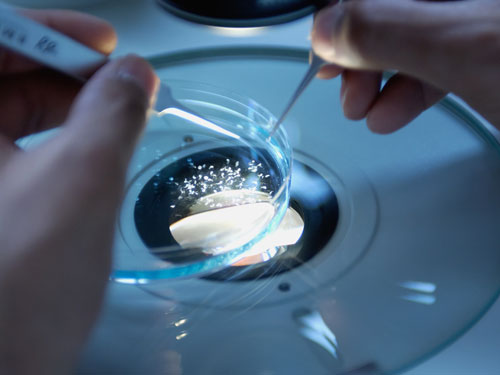- About
- Academics
-
Undergraduate Programs
- Civil and Environmental Engineering
- Architecture and Architectural Engineering
- Mechanical Engineering
- Industrial Engineering
- Energy Resources Engineering
- Nuclear Engineering
- Materials Science and Engineering
- Electrical and Computer Engineering
- Naval Architecture and Ocean Engineering
- Computer Science and Engineering
- Aerospace Engineering
- Chemical and Biological Engineering
-
Graduate Programs
- Civil and Environmental Engineering
- Architecture and Architectural Engineering
- Mechanical Engineering
- Industrial Engineering
- Energy Systems Engineering
- Materials Science and Engineering
- Electrical and Computer Engineering
- Naval Architecture and Ocean Engineering
- Computer Science and Engineering
- Chemical and Biological Engineering
- Aerospace Engineering
- Interdisciplinary Program in Technology, Management, Economics and Policy
- Interdisciplinary Program in Urban Design
- Interdisciplinary Program in Bioengineering
- Interdisciplinary Program in Artificial Intelligence
- Interdisciplinary Program in Intelligent Space and Aerospace Systems
- Chemical Convergence for Energy and Environment Major
- Multiscale Mechanics Design Major
- Hybrid Materials Major
- Double Degree Program
- Open Programs
-
Undergraduate Programs
- Campus Life
- Communication
- Prospective Students
- International Office
- HOME
- Academics
- Graduate Programs
- Chemical and Biological Engineering
- Civil and Environmental Engineering
- Architecture and Architectural Engineering
- Mechanical Engineering
- Industrial Engineering
- Energy Systems Engineering
- Materials Science and Engineering
- Electrical and Computer Engineering
- Naval Architecture and Ocean Engineering
- Computer Science and Engineering
- Chemical and Biological Engineering
- Aerospace Engineering
- Interdisciplinary Program in Technology, Management, Economics and Policy
- Interdisciplinary Program in Urban Design
- Interdisciplinary Program in Bioengineering
- Interdisciplinary Program in Artificial Intelligence
- Interdisciplinary Program in Intelligent Space and Aerospace Systems
- Chemical Convergence for Energy and Environment Major
- Multiscale Mechanics Design Major
- Hybrid Materials Major
Chemical and Biological Engineering
 ChairJong Chan Lee
ChairJong Chan Lee Tel02-880-7400
Tel02-880-7400

Introduction
Research topics in the graduate program in the Department of Chemical and Biological Engineering include petrochemistry, catalyst engineering, organic synthesis, process design, automation, bionics, environmental engineering, fine chemistry, high molecular weight materials and processes, semiconductor/electronic materials processing, fuel cells, nanoscale inorganic new material development, and environmentally friendly clean technology development. In addition to this vast research scope, the department provides the perfect environment for research in rapidly converging technologies that have the potential to change the future of society.
Since 1999, various world-class achievements in both education and research have been made through the chemical industry’s Brain Korea 21 project. In 2008, the World Class University program was established in response to the convergence of topics in energy, environmental, and chemical technologies; it continues to foster competitive talents that will be of value as globalization proceeds.
Research Areas in Detail
High Molecular Weight/High Functional Information Materials
High molecular weight materials, which are core components of semiconductors, flat screen displays, and batteries, are widely used alone and as components in larger devices. Electronic/information technology applications of high molecular weight materials include alignment films for liquid displays, polarizers, electrolytes for batteries, and high molecular weight films for fuel cells. Practical research areas in high molecular weight nanomaterials include organic?inorganic nanomaterials, high molecular weight ceramic nanomaterials, and high molecular weight high-quality ceramic materials.
Biotechnology
Human health will be advanced through the development of medical supplies that use the information from biochips (e.g., DNA, protein, cell, and nerve chips). In addition, research on and development of the fundamentals of the living body’s molecules, environmentally friendly bio-processes, and artificial internal organs are necessary for a healthy future. The School of Chemical and Biological Engineering is the only place that conducts education and research related to the application and industrialization of biotechnology methods in the college of engineering.
Information and Electronic Materials
The emergence of high-speed, high-capacity semiconductor devices became possible because of new electronic materials and improvements in the processing of electronic materials. These devices also function at a low voltage, which significantly increases battery life. IBM has already developed a new semiconductor chip that is capable of a 33% increase in performance by using a low-k dielectric and copper interconnections. These improvements in transmission speed and capacity allow the production of smaller electronic devices, such as cell phones; supercomputers are expected to be as portable as laptop computers in the future.
Environmental Engineering
This is a technological engineering areas concerned with the purification of the environment. The main research topics include purification of water or industrial wastewater by using membranes and advanced oxidization processes, development of new sources of absorbents for treating and re-using industrial waste, development of clean, non-polluting production processes, and treatment of polluted substances using solar energy.
